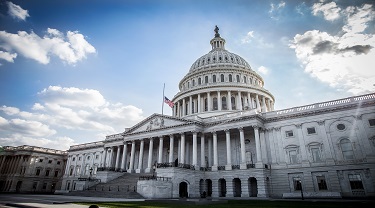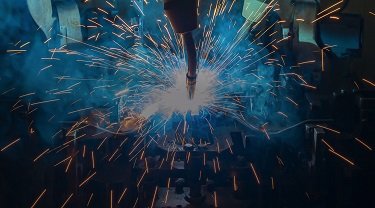Despite Canada’s fear and trepidation, U.S. President Donald Trump’s State of the Union address hardly mentioned trade at all, let alone trade with Canada.
Few mentions of international trade
“In a 5,250 word-speech, international trade took up only 78 words,” noted Export Development Canada’s Chief Economist Peter Hall. “That’s just 1.5 per cent of the total text, and essentially contained no new messages on trade.”
In a 5,250 word-speech, international trade took up only 78 words.
In that sense, Hall said, the speech “did not throw a new wrecking ball into trade,” assuaging the worst fears of some. Notably, Canada was never specifically referenced in the speech, nor was NAFTA.
On trade deals, President Trump said he wanted to “fix” them, rather than dismantle them, and added that the U.S. wants to negotiate new ones, signaling that the U.S. is not closing the door to global trade. It was also abundantly clear that the U.S. expects all trade deals to be “fair and reciprocal.” Hall infers that to mean that the President is still focused on trade deficits as a score-keeping device.
Stephen Tapp, Deputy Chief Economist for EDC, said that on trade, we learned more from Trump’s speech last week at Davos, when the President said that the U.S. may be open to negotiating with Trans-Pacific Partnership countries, “either individually or perhaps as a group”.
When Trump spoke about the automotive sector, he said, “many car companies are now building and expanding plants in the United States — something we have not seen for decades.” He mentioned Chrysler’s relocation of a plant from Mexico to Michigan, and Toyota and Mazda’s joint plans for opening a plant in Alabama.
Hall said the fact that Trump didn’t mention Canadian autos is also notable.
“Canada wasn’t even sighted. The comments that were made about the auto sector were focused squarely on Mexico,” Hall said.
A protectionist tilt on infrastrucuture
On infrastructure, Trump called on both parties to get together to give the U.S. “safe, fast, reliable and modern infrastructure our economy needs and our people deserve.” He wants Congress to produce a bill for $1.5 trillion in infrastructure spending that would include “new roads, bridges, highways, railways and waterways” and would be executed by “American hearts, American hands and American grit.”
In that, Hall sees protectionism for procurement.
“There’s a definite protectionist tilt on infrastructure,” Hall said. “It’s likely a signal of where government procurement is headed.”





